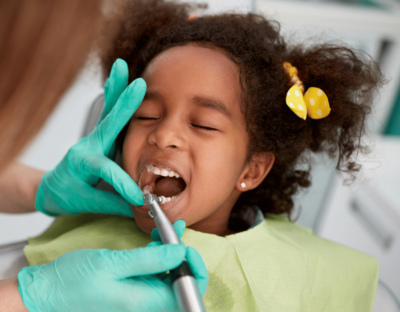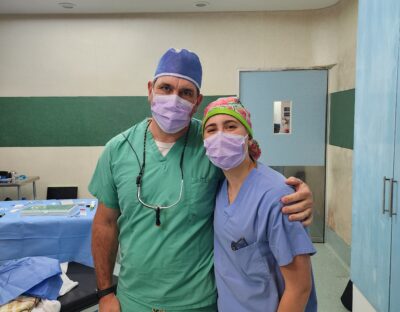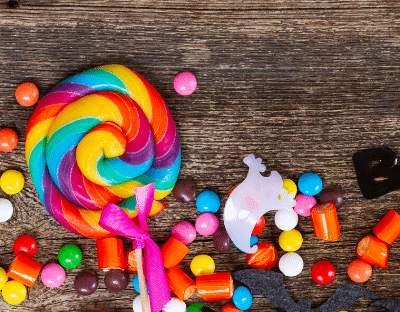Stop the Pacifier (Yesterday)!

When should my child stop using a pacifier?
Parents frequently ask us, “Which pacifier is best for my baby” or “When should I stop using the pacifier?” The answer is very simple but needs explanation.
No matter what you call it, a binkie, bo-bo, paci or any of the other hundred names it may go by, the pacifier may have a small place in early infancy, but beyond that point, it can be very harmful. Pacifiers are needed, at times, to help calm the upset, fussy, hungry or uncomfortable newborn until the parent can tend to the child’s needs. Their utilization, however, should be very limited and prolonged use can negatively impact the growth and development of the mandible (lower dental arch), the maxilla (upper dental arch) and muscle development and utilization of the tongue.
How a pacifier affects a child’s growing mouth
As an infant grows and develops rapidly in the first months to years of life, the bones of the face and jaw are highly influenced by the forces that are placed on them. If an infant uses a pacifier for a long period of time many changes can occur with the dental arches, teeth and facial features. Continued or excessive pacifier use will cause the more ideal, rounded U-shape of the dental arches to become constricted and narrow.
As the arches narrow, the teeth can become more crowded and the upper anterior or front teeth can incline or protrude forward. This will cause the arch form to change to a more V shape and lead to the front teeth being more exposed and at a higher risk for trauma. This is known as an excessive amount of overjet, or anterior placement of the top front teeth in relation to the bottom front teeth.
The lips are typically in place to protect the front teeth from trauma, but if the front teeth are pushed forward they are more prone to trauma from a fall as the infant or toddler starts to move more. In addition to the front teeth being pushed forward from sustained pacifier use, they can also be pushed upwards toward the nose and lead to what is formally known as an open bite. An open bite, where the front teeth do not touch or overlap, can make speech production and the ability to bite into food very challenging. The front teeth may erupt or grow in slower or out of order and lead to aesthetic concerns as well.
The pacifier’s impact on a child’s tongue
Continued use of a pacifier can not only impact the development of the dental arches and mouth but the development of the tongue muscle. Larger, more bulbous shaped pacifiers may be easier for an infant to hold, but they often bite down to hold them. The bulbous end of the pacifier will then push down on the tongue and not allow for the tongue to move, develop or properly function. This can lead to changes in eating habits toward softer and more processed foods, which will not help the muscles of the jaw and face develop ideally.
The tongue is very important in the early development of the palate, dental arches, and airway. If the tongue is not allowed to interact or contact the palate and dental arches, the development of these structures can be negatively impacted and affect a patient for years until orthodontic care can occur.
How long is too long?
Hopefully, the information outlined above helps explain how damaging the use of pacifiers can be, but how long is too long? The answer to that question is unique to each child and factors in how often the child uses the pacifier, how intensely they suck on the pacifier and the type and position or placement of the pacifier in the mouth.
The best answer I feel we can give the parent when asked this question is, “Stop Yesterday!”. The sooner a child can stop using a pacifier, the higher the likelihood the damage can cease or in some cases, reverse back to a more normal presentation. Typically, when pacifier habits continue after a child’s 2nd birthday, more damage can occur to the dental arches and often will not resolve and lead to increased risk or dental trauma, speech and articulation challenges.
How do I stop my child from relying on a pacifier?
There are essentially two ways to stop the use of a pacifier in an infant or toddler. The quickest, but not always the easiest way is to go “cold turkey” and collect any and all pacifiers and throw them away or bring them into our office so we can “donate” them to other babies in need. Obviously, we do not reuse the pacifiers and they are “donated” to the trash after the patient leaves the office. This means everyone in the household and who helps care for the child must be on board for this and not give in to the child’s demand or plea for the pacifier.
If this approach is not possible, we suggest that the parent clip off the very end of the bulbous part of the pacifier that goes into the child’s mouth. This will cause the bulb to collapse and we typically tell the toddler that the pacifier is broken. If they continue to use the pacifier, it is recommended to cut more of the pacifier off the following week. It is best to cut a few millimeters off, or about the width of a pencil each week until the pacifier is no longer being used. Both approaches can involve whining, tears, drama and a fussy child for a short time, but it is well worth minimizing the damage that can occur from prolonged use of the pacifier.
The best advice I can give about “What is the best pacifier”, is no pacifier is good for the growth or development of the dental arches and muscle coordination or development of the tongue. As far as “When should I stop the pacifier”, the best advice is to stop yesterday or as soon as possible. There is no exact age when it should occur, but I highly encourage all pacifiers to stop by the first birthday. Speaking of the first birthday, that is the exact time we want and need to see you and your child at the office.
Go from When Should My Child Stop Using a Pacifier back to the Pediatric Dental Associates Blog
Serving Lots of Happy Patients
"I’ve been going to Pediatric Dental Associates since I was a child, now I take all 3 of my children there. Great office! Love Dr. Sara, and the my two favorite hygienist…" Read More
"My daughter has special needs & going to the dentist is very difficult for her. Every time she goes she is treated with great care & her needs are always remembered and…" Read More
"How many people can say that their children love going to the dentist? I'm not sure of the stats, but I can raise my hand. From the front desk staff to the…" Read More



